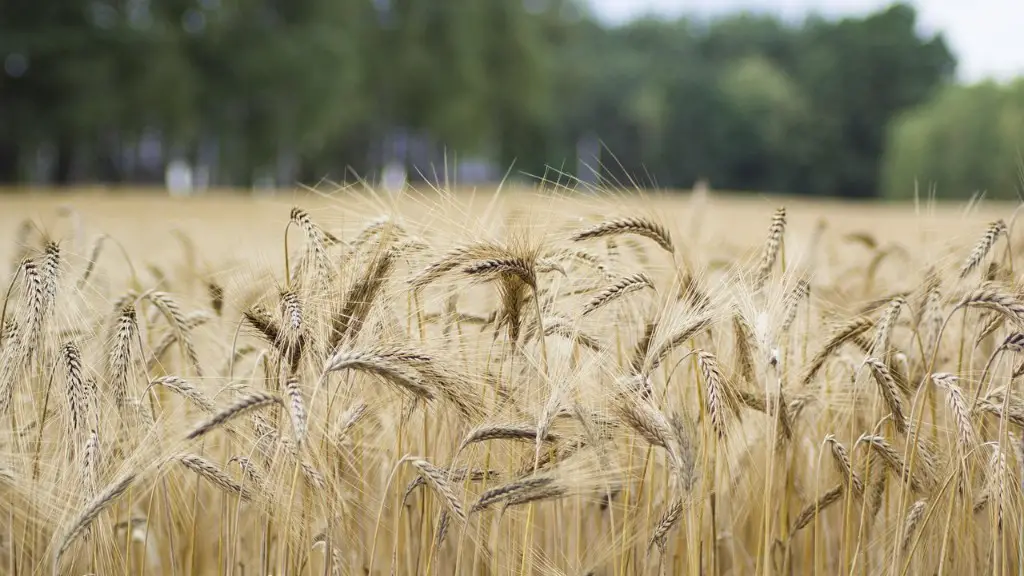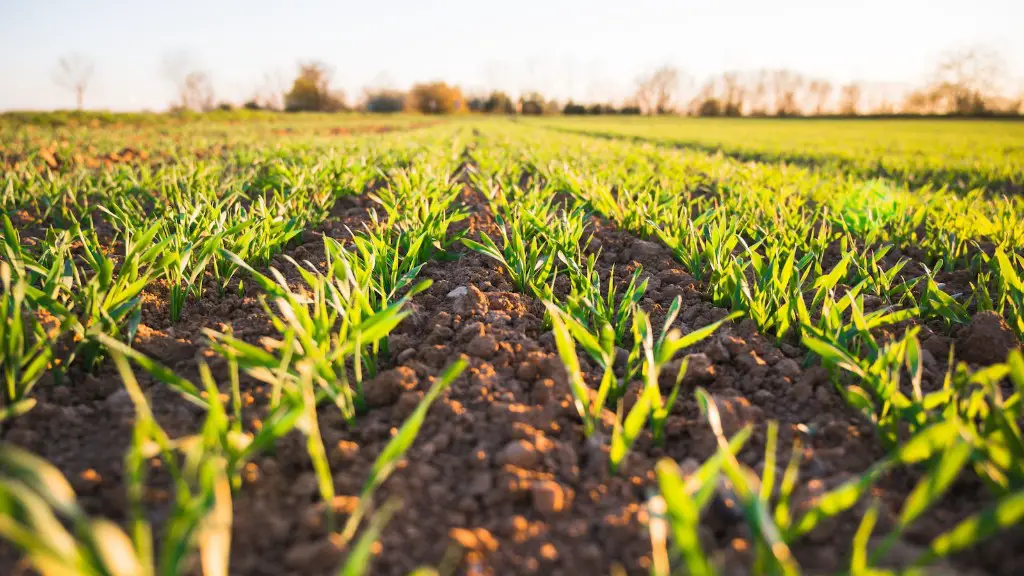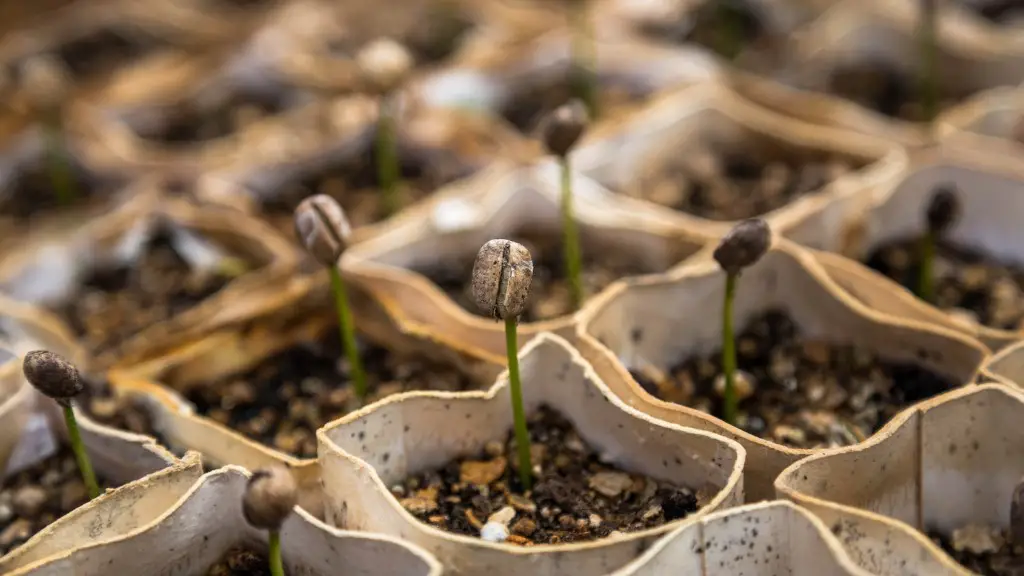Biodiversity is the term used to describe the variety of life on Earth. This includes the different plants, animals, and microorganisms that make up our planet. Biodiversity is important for many reasons, including its role in medicine and agriculture.
Biodiversity provides us with a variety of resources that can be used for medicinal purposes. For example, plants can be used to create medicines and new medical treatments. Animals can also be used in the development of new medicines and therapies. In addition, microorganisms can be used to create new vaccines and drugs.
Biodiversity is also important for agriculture. A variety of crops and livestock are needed to provide us with food and other products. The loss of biodiversity can lead to a decrease in crop yields and an increase in the incidence of disease in animals. Thus, biodiversity is essential for both medicine and agriculture.
Biodiversity is the variety of life on Earth. It includes the different plants, animals, and microorganisms that make up our planet’s ecosystems. Biodiversity is important for both medicine and agriculture.
For medicine, biodiversity provides us with a variety of different plant and animal products that can be used to create new medicines. Biodiversity also helps to determine which medicines are effective for which diseases. For example, research on the venom of different snakes can help us to develop new medicines for pain relief or to treat heart conditions.
For agriculture, biodiversity is important for crop pollination, pest control, and soil health. Crop pollination is when bees or other insects transfer pollen from the male parts of a plant to the female parts of the plant, resulting in the plant producing seeds. Pest control is when animals or insects eat other animals or insects that are damaging crops. Soil health is improved when different types of plants and animals live in the soil, because they help to aerate the soil and add nutrients.
How does biodiversity benefit medicine?
Biodiversity may help regulate infectious diseases by controlling pathogen host populations through competition and predatory interactions. This can reduce pathogen success by limiting the number of potential hosts, and by making it more difficult for pathogens to find and infect new hosts. In addition, biodiversity can provide buffers against disease outbreaks by increasing the number of healthy individuals in a population.
Agricultural biodiversity is essential to satisfy basic human needs for food and livelihood security. It contributes directly to food security, nutrition and well-being by providing a variety of plant and animals from domesticated and wild sources.
Biodiversity, food and nutrition interact on a number of key issues. For example, biodiversity provides a wide range of options for food production, which can help to improve food security and nutrition. Biodiversity can also help to improve the quality and safety of food, as well as provide a source of essential nutrients.
In addition, agricultural biodiversity can help to increase the resilience of food systems to shocks and stresses, such as climate change, by providing a range of options for adaptation and mitigation.
How does biodiversity impact agriculture
Biodiversity is essential to food and agriculture. It supplies many vital ecosystem services, such as creating and maintaining healthy soils, pollinating plants, controlling pests and providing habitat for wildlife, including for fish and other species that are vital to food production and agricultural livelihoods.
Agricultural biodiversity is important for food security and nutrition, as it provides a wide range of options for people to choose from in terms of what to eat. It also helps to ensure that our food supply is resilient to changes in the environment, such as climate change.
There are many ways to conserve and promote agricultural biodiversity. One way is to use traditional knowledge and practices, such as traditional crop varieties, to maintain and enhance diversity. Another way is to use modern technology, such as genetic engineering, to create new crop varieties that are more resistant to pests and diseases.
The Convention on Biological Diversity (CBD) has adopted a number of measures to promote agricultural biodiversity. These include the development of national strategies and action plans, the establishment of protected areas, and the promotion of sustainable agriculture.
Is agriculture good for biodiversity?
The expansion of agriculture has caused massive losses in biodiversity around the world. Natural habitats have been converted to farms and pastures, and soils have been degraded. Pesticides and fertilizers have also polluted the environment.
Agriculture is completely dependent on biodiversity. It has facilitated the development of farming systems since the first development of agriculture some 10,000 years ago. This concept is the root and variation within all plant and domesticated animal species.
What are 3 benefits of agriculture?
Agriculture is vital for a number of reasons. Firstly, it is the main source of raw materials for many industries. Secondly, it is crucial to international trade, as a large proportion of commodities are traded internationally. Thirdly, agriculture plays a big role in a nation’s revenue, as it is one of the biggest contributors to GDP.Fourth, it provides employment for a huge number of people, both in terms of direct employment in the sector, and in terms of indirect employment in the industries that rely on agriculture for raw materials. Fifth, agriculture is crucial to a country’s development, as it is a major driver of economic growth. Sixth, agriculture can help heal the environment, as it can be used to rehabilitate degraded land. Seventh, agriculture and war are closely linked, as a country’s food security is often a key factor in its ability to wage war. Eighth, agriculture is a major source of food for the world’s population. ninth, agriculture is a key sector in terms of poverty alleviation, as it is estimated that around 70% of the world’s poor live in rural areas and are reliant on agriculture for their livelihoods. tenth, agriculture is a major contributor to global food security, as it is responsible for producing the vast majority of
Biodiversity conservation efforts are essential for maintaining functioning ecosystems, a steady food supply, and the multiple other benefits including aesthetics, recreation, and spiritual purposes to Native American tribal nations. By conserving biodiversity, we can ensure that future generations will be able to enjoy these benefits and continue to live in healthy and thriving ecosystems.
What is the main benefit of agriculture
Agriculture plays a vital role in reducing poverty, raising incomes and improving food security for the majority of the world’s poor. Most of the world’s poor live in rural areas and depend on agriculture for their livelihoods.
By investing in agriculture, we can help the poor to escape poverty and improve their food security. We can also help to protect the environment and reduce hunger and malnutrition.
Agriculture plays a critical role in providing raw materials for other industries. Without agriculture, many industries would not be able to survive. This is because agricultural products serve as raw materials for the production of many items. For example, cotton is a major raw material for the textile industry. Similarly, corn is a major raw material for the food and beverage industry. Thus, agriculture plays a vital role in supporting other industries.
What is the importance of agriculture to health?
Health is one of the paramount concerns of individuals and good health is impossible without a reliable and continuous supply of food. Agriculture is the backbone of such a supply and it is fundamental for good health. Agriculture not only provides food but also fiber and materials for shelter. In some cases, it also provides medicinal plants. The importance of agriculture for good health cannot be underestimated.
The film “Medicine Man” highlights the importance of biodiversity in providing humans with the medicines they need. Dr Campbell’s discovery of a flower that could potentially cure cancer is a perfect example of how beneficial biodiversity can be.
What are 5 benefits of biodiversity
Biodiversity is key to our survival for many reasons. Biodiversity ensures health and food security, helps fight disease, benefits business, and provides livelihoods. Biodiversity also protects us from extreme weather and other environmental threats.
Biodiversity is essential for the proper functioning of ecosystems and the services they provide. These services are vital for human wellbeing, and include the provision of clean water, food, and timber; the regulation of climate; the control of pests and diseases; and the detoxification of wastes. The loss of biodiversity can therefore have serious consequences for human health and wellbeing.
What are the positive impacts of agriculture on the environment?
Agricultural operations that are managed sustainably can help protect the environment in many ways. By preserving and restoring critical habitats, they can help to ensure that wildlife has a place to live and flourish. In addition, by protecting watersheds they can help to keep our water supplies clean and healthy. Furthermore, by improving soil health and water quality, they can help to ensure that food production is not adversely affected by environmental degradation.
Urban farming has a variety of benefits that are becoming more and more acknowledged as the trend starts to become quite popular. These benefits include lower greenhouse gas emissions, minimal transportation requirements, and reduced energy use for food production. As more people become aware of these benefits, it is likely that urban farming will continue to grow in popularity.
Final Words
Biodiversity provides significant benefits to both medicine and agriculture. In medicine, biodiversity helps to ensure that new medical treatments are developed and that existing treatments are effective. In agriculture, biodiversity helps to improve crop yields and to reduce the impact of pests and diseases.
Biodiversity provides a number of benefits for medicine and agriculture. It can be a source of new and innovative treatments for a variety of diseases, as well as a source of new crops and food sources. Additionally, biodiversity can help to provide a more sustainable and resilient food supply, which is vital for both agriculture and medicine.





